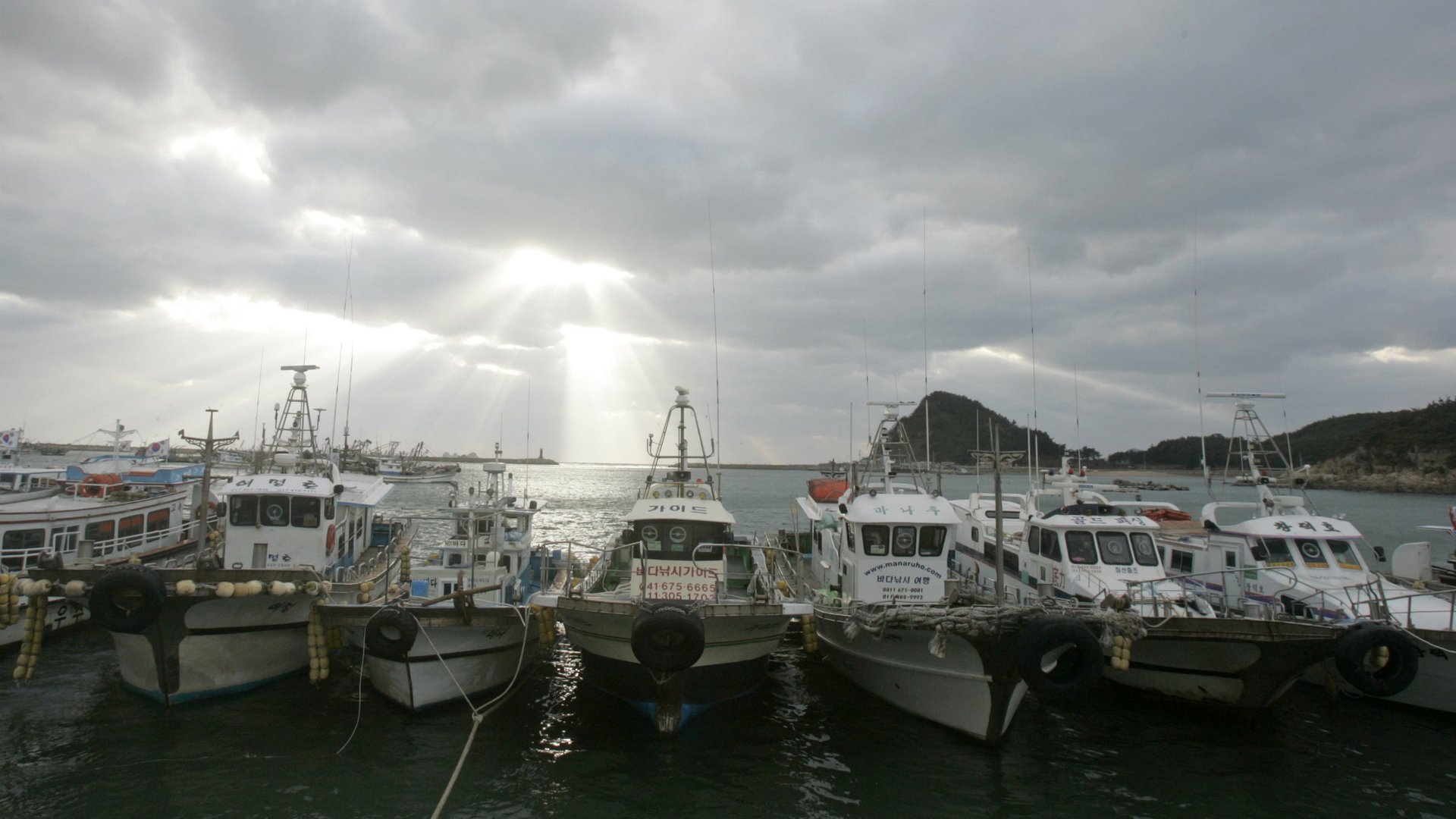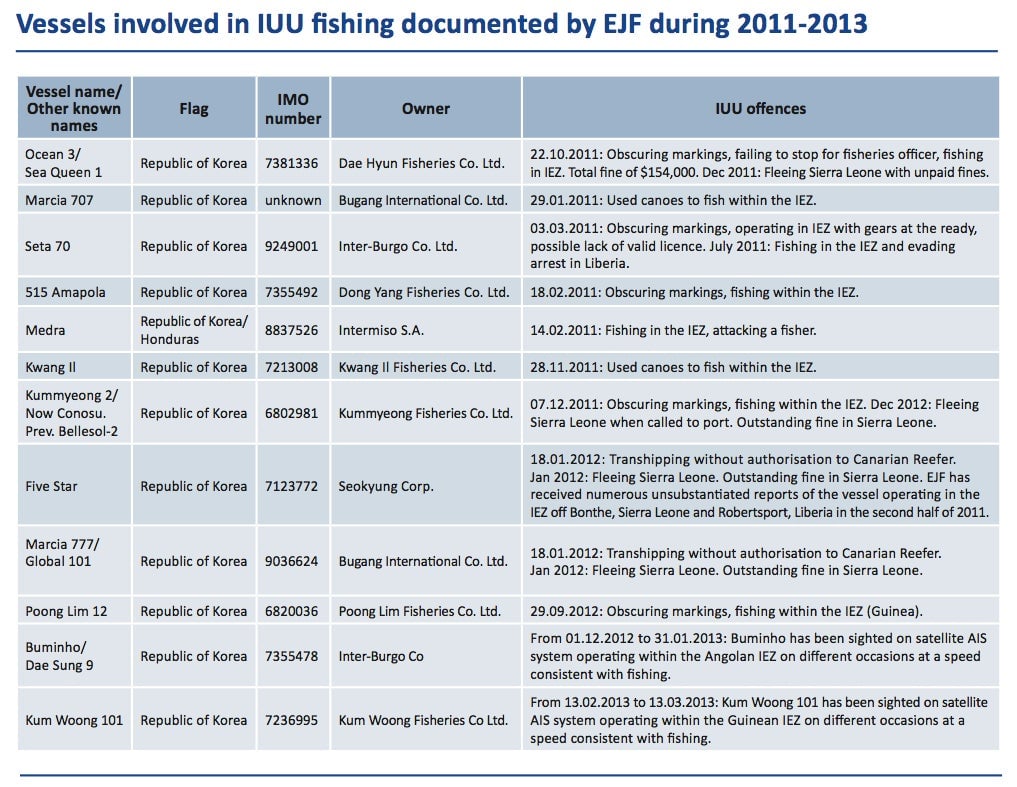Can the EU stop South Korea’s fishing vessels from cheating it out of wages and jobs?
The European Union, the world’s biggest seafood market, is having to choose between cheap illegal fish and happy local fisherman.


The European Union, the world’s biggest seafood market, is having to choose between cheap illegal fish and happy local fisherman.
By last count, around €1.1 billion in illegal seafood is sold in EU markets each year, which is roughly 16% of the region’s total imports. That hurts law-abiding EU fishermen by lowering prices, exhausting supply and generally making the business harder for them. For instance, illegal fishing costs EU countries some 27,800 jobs, around 13% of total industry employment.
The EU passed aggressive laws in 2010 to put an end to illegal, underreported and unregulated (IUU) fishing, which should be having an impact, given that the EU is the world’s biggest seafood market.
One problem is that another fishing superpower, South Korea, is flouting the rules. With 359 vessels, the South Korean distant-water fishing fleet is huge. It’s responsible for the world’s third-biggest annual haul of fish (pdf, p.3) and exports around $1.7 billion a year.
Its vessels are also among the biggest violators of EU fishing laws, particularly the catches it sells to the EU from West African waters, which account for a sizable chunk of Europe’s fish (pdf, p.5). ”We continue to document illegal fishing by Korean vessels in West Africa, [which has] devastating impacts on coastal communities,” says Steve Trent, executive director of Environmental Justice Foundation (EJF), a non-profit group. Understaffed West African coast guards lack the means to control the fishing that happens in their waters, Trent explains, which robs local fishermen of catches.
The South Korean government makes this illegal fishing possible by granting EU hygiene certifications to these vessels, which clears them to sell into EU markets and makes it difficult for EU authorities to track, says a recent EJF report (pdf).
Here’s a look at how those vessels get away with the practice, including through “transhipping” and “flags of convenience,” which we recently explained in more detail:

US fishing has also been affected. Citing a litany of violations (pdf, p.24-6), the US government recently censured South Korea for “failing to apply sufficient sanctions to deter its vessels” from IUU fishing in Antarctic waters.
The South Korean government isn’t alone in ignoring the laws. But as a fishing superpower and a signatory to many international conventions (pdf), the country should serve as a model for other fish exporting countries to follow.
Barring that, the only remedy to overfishing is for fish importing countries to get more aggressive about enforcing the rules, such as the EU’s 2010 law. “In the case of Korea…it is absolutely essential that all vessels identified fishing illegally are blacklisted by the EU,” EJF’s Trent tells Quartz.
In the meantime, the South Korean government may be turning a corner. It just upped the penalty for IUU fishing. The question is whether it will actually enforce the penalty, rather than merely issuing the rule.